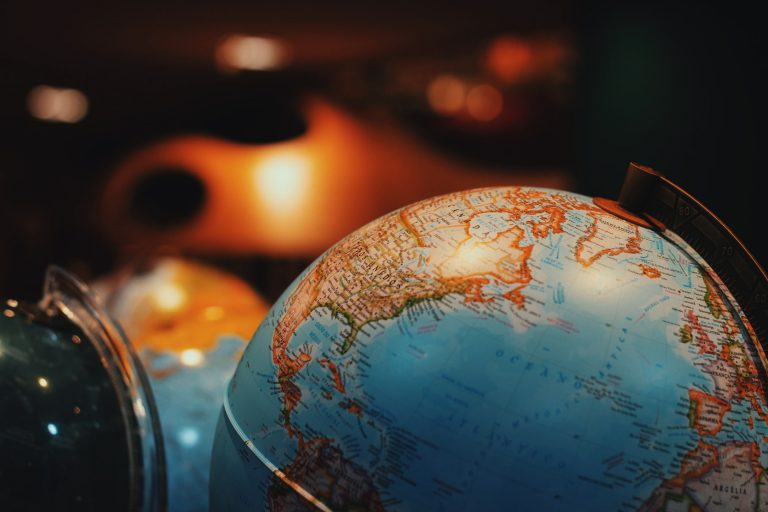The Los Angeles Times reported on April 16 that 97% of United States citizens are social distancing. Many states are not due to open non-essential businesses until mid-May, but some are having a harder time adhering to the Center for Disease Control and Prevention’s regulations. With states like Alaska, Georgia and Florida already opening beaches and other public spaces, flattening the curve may take longer than anticipated.
Kentucky is on the lower end of the COVID-19 spectrum with about 3,000 cases and 171 deaths, according to the CDC. Although these numbers are lower than most states, Asbury University has a global network of students. Despite the majority being from either Kentucky or neighboring states, many live throughout the U.S and abroad.
United States
Senior Kirstyn Madill lives about an hour away from Detroit and said that they have been placed on stay-at-home order since mid-March. Madill said she wasn’t allowed to buy fertilizer at a grocery store because the item was not deemed essential.
With over 2,800 deaths (according to michigan.gov’s statistics), Michigan is one of the most affected states thus far. However, some people in Michigan are ready to leave their homes, as thousands gathered in Lansing last week to protest the stay-at-home order.
“That puts everyone else in jeopardy because things were getting better,” Madill said.
There’s also a bit of coronavirus controversy in the south as well as the north. Despite the increasing number of COVID-19 cases in Florida, beaches have already opened back up. Residents have been told to practice social distancing, as well as wear masks outdoors. Essentials like grocery stores and drive-thrus are still open.
Sophomore and Florida native Andy Henderson said of the situation, “It’s sort of become normal at this point.”
When senior Julia Thompson landed in her home state of California, she was instructed to pull a shirt out of her suitcase to use as a facemask. California is strictly enforcing wearing masks at all times in public. According to Thompson, Huntington Beach became a place to hang out and work out since gyms and other non-essential places were open, but the beach has been restricting the number of people who gather there due to social distancing measures. These measures have posed an obstacle for Thompson, who plans to get married in July.
“I get to get my wedding dress altered with a face mask today,” she said.
South America
“At least in my city, guys can leave on odd days and women on even days to get groceries,” said senior and Colombia native David Gomez. According to Worldometer, Colombia has over 4,000 cases, which is on the lower end, but the country has already decided to cancel school for the next semester. Gomez stated that the mayor of Bogota claimed that the city will not go back to normal for the remainder of 2020.
Freshman Isa Gutierrez has been having a similar experience in her hometown of La Paz, Bolivia.
“I can only go out on Tuesdays, because of the last number of my ID,” she said. There are less than 1,000 cases country-wide, according to Worldometer and Gutierrez credits the strict stay-at-home measures and military intervention.
Europe
Senior Aron Van Gooswilligen said that Norway is in good shape because the country decided to take action very early on. With borders, schools and nonessential establishments closing in early March, the curve is going down. There have been a reported 191 deaths out of the over 7,000 cases (according to Worldometer), but many establishments are scheduled to open before the first of May.
Van Gooswilligen stated, “This week we have been encouraged to download an app that tracks the people that we have been in contact with that may have the coronavirus so that they can control the spread and know where it is located.”
In Portugal, there are fewer cases than in other European countries — over 22,000 cases and 820 deaths, Worldometer reported — because of strict quarantine orders.
“I haven’t left my house since I arrived, and after one month it is getting hard to entertain myself,” said freshman Duarte Nuno. Nuno stated that being stuck at home and not being able to work makes him worry for his country’s economy in the long run.
“Our national health service for now is doing a very good job . . . it’s been hard for everyone,” he said.
Asia
Junior Annie Pan is currently in Taiwan where there are over 400 cases and 6 deaths, according to Worldometer. Pan was quarantined upon arrival but received books, snacks and a $30 allowance from her government. Pan stated that individuals will get fined if they are caught leaving home.
“But I felt like I was getting paid to be at home, so it wasn’t too bad,” she said. She added that the schools in Taiwan are still open, and only people who have been in contact with someone infected or recently traveled need to quarantine.
“The government took a lot of precautions,” she said. “We are doing really great as a country that is not part of the WHO.”



